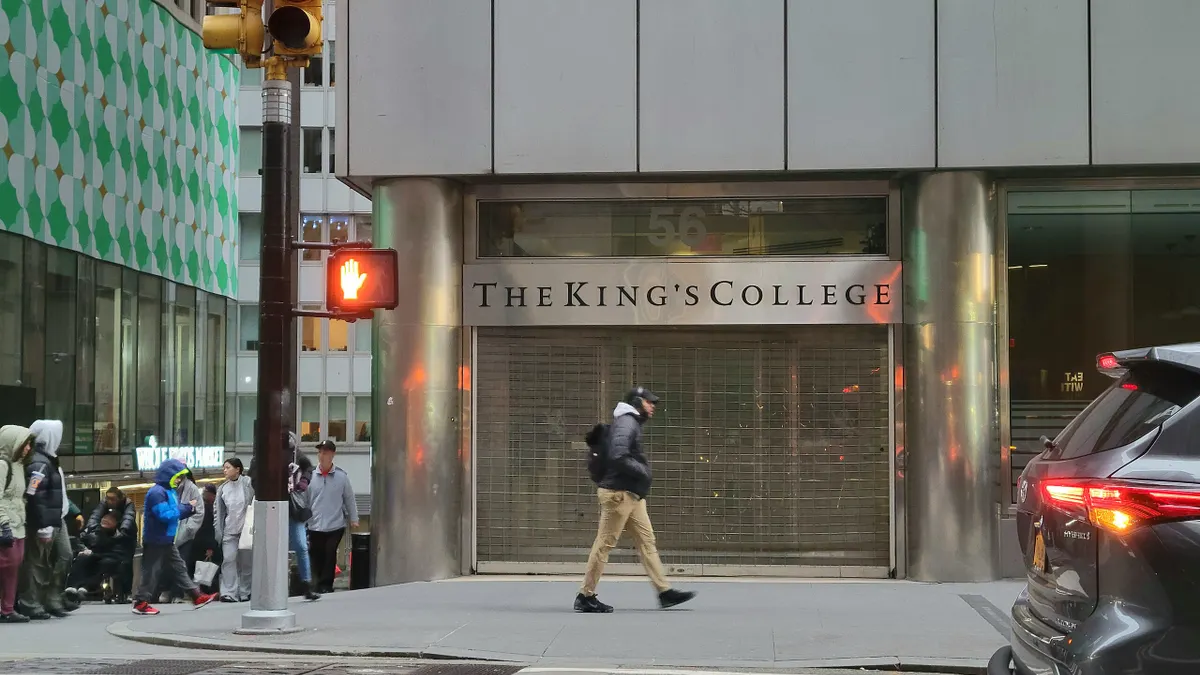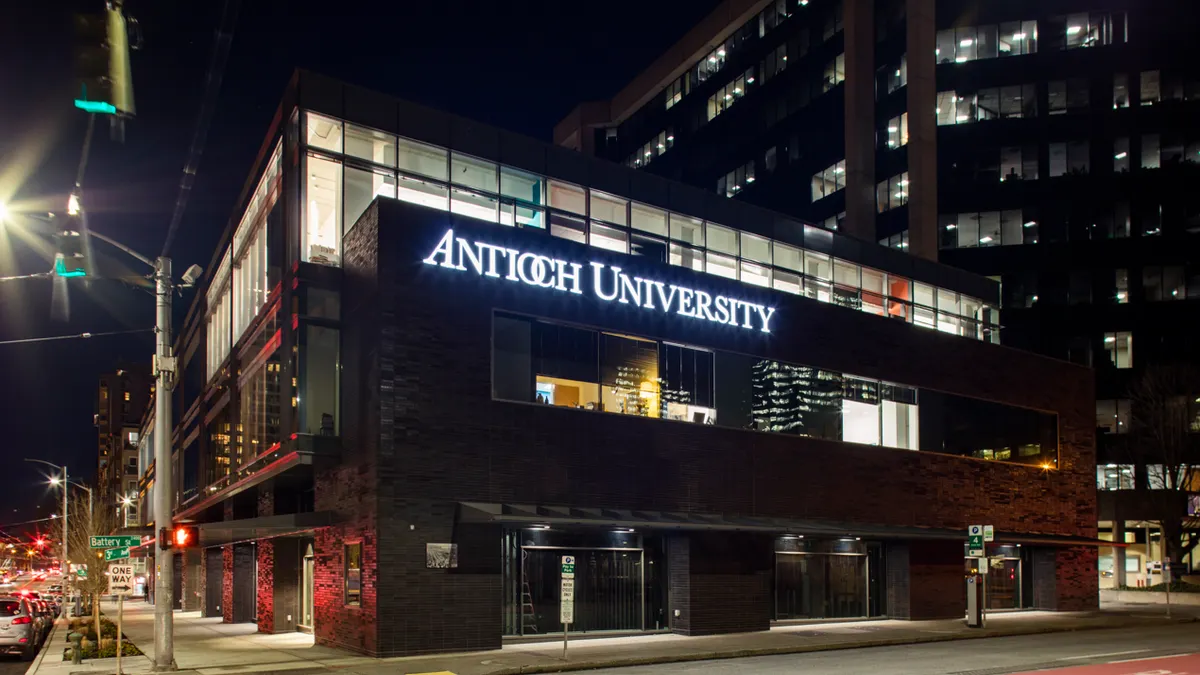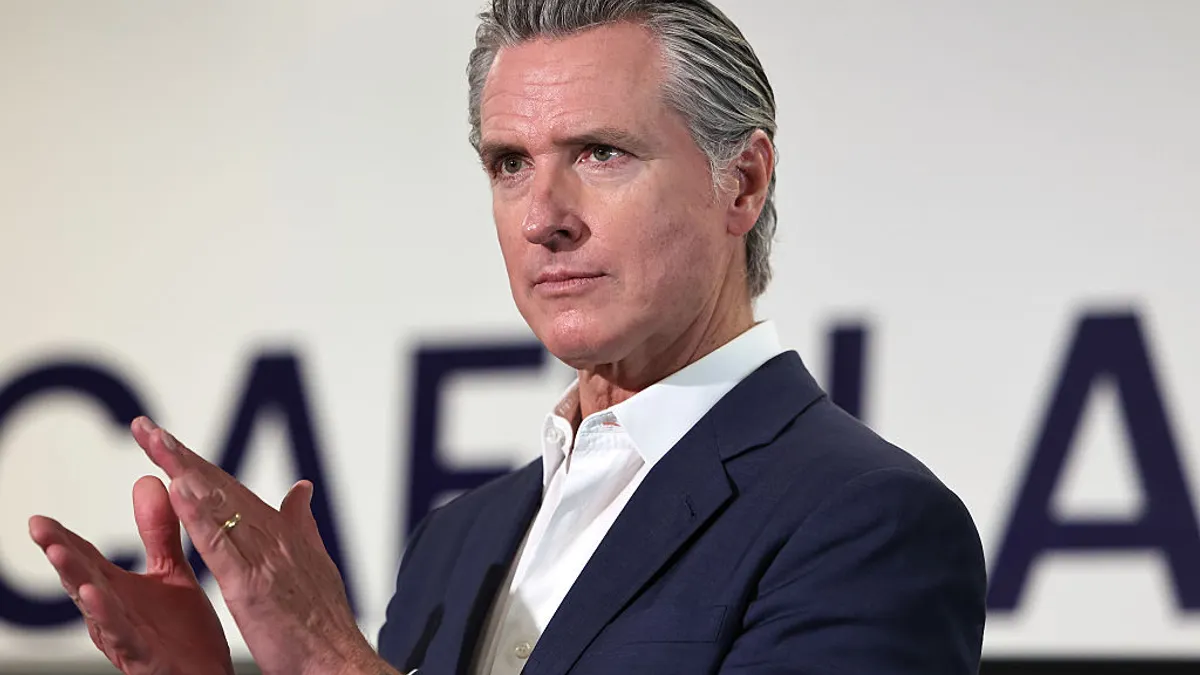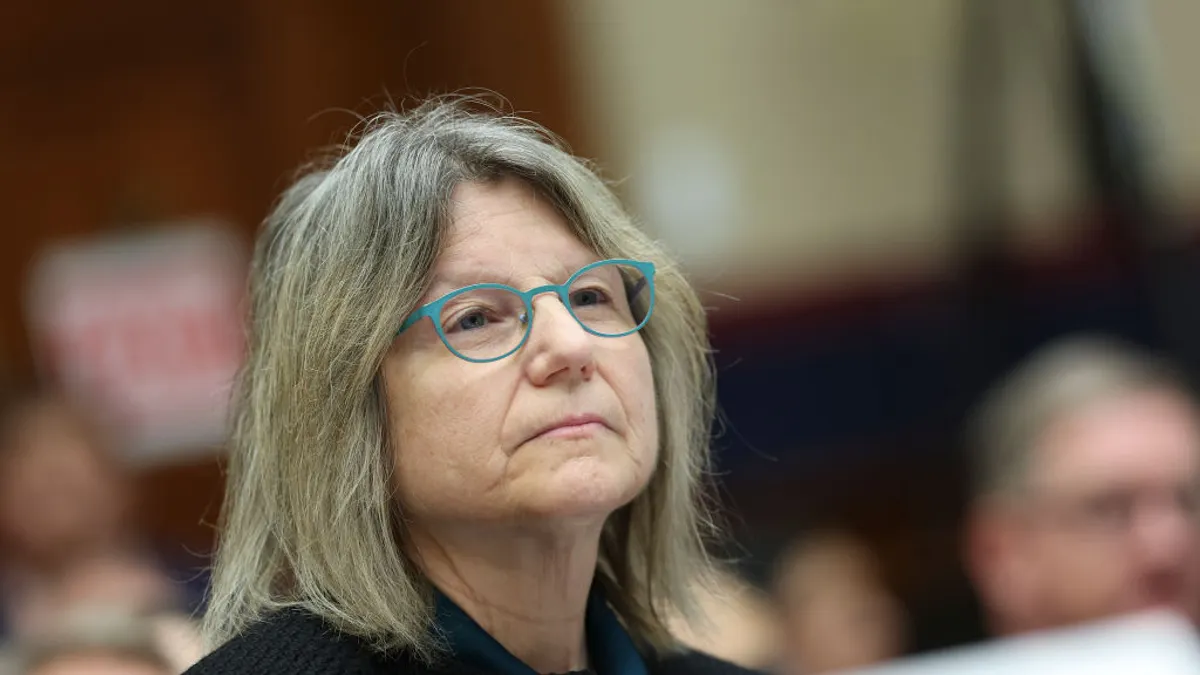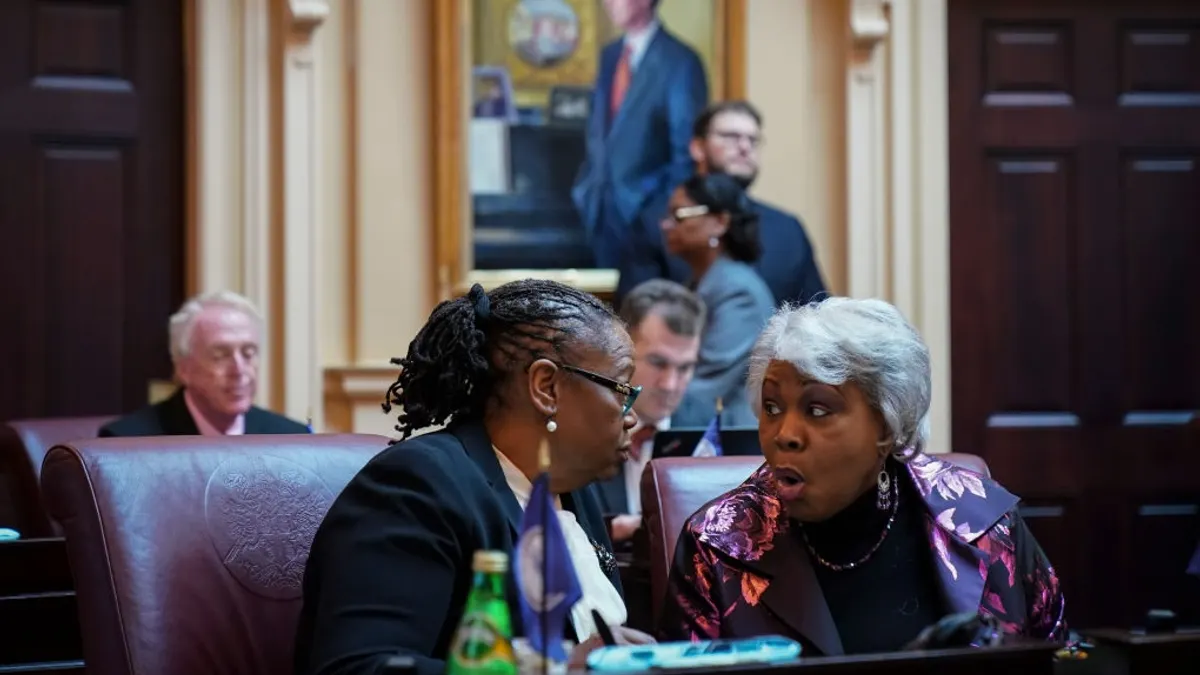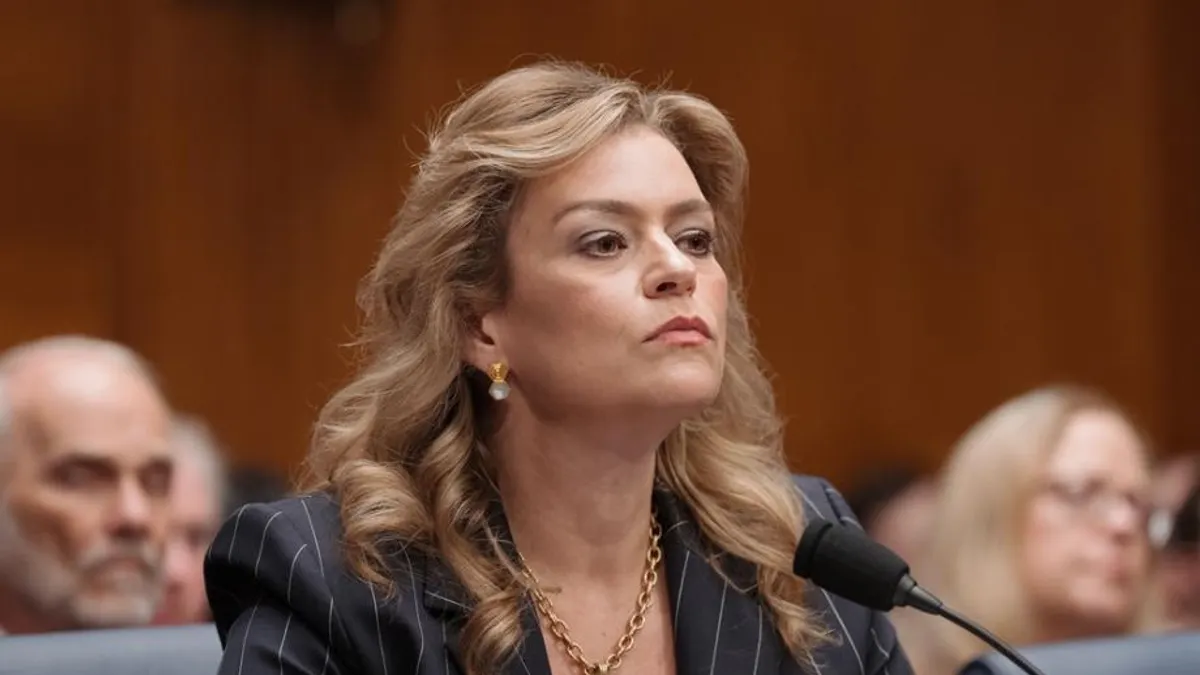WASHINGTON — "If someone were to ask me what is the single-biggest issue facing higher education in this country right now — [other] people will say innovation, they would say financial issues and so forth. I think the biggest issue facing higher education right now is complacency," said West Virginia University president Gordon Gee, during a panel discussion on the reauthorization of the Higher Education Act Monday.
Gee was one of several industry leaders at the event, sponsored by the Committee for Economic Development of The Conference Board, who offered recommendations as to what policymakers ought to focus on in order to move the sector forward. Gee said he has been a longtime advocate of the notion that leaders need to "blow up the box" in order for the industry to survive, getting rid of what he calls the "tyranny in the way we are organized" into restricted silos that prevent creativity.
When it comes to incorporating this idea into HEA reforms, the panelists said policymakers need to find the sweet spot between accountability and deregulating the academy for innovation.
Chris Gabrieli, board chair of the Massachusetts Department of Higher Education, said that recent events in the state provided a perfect framework for why reauthorizing the HEA is necessary. While Massachusetts is known for boasting statistics like having some of the highest high school graduation rates in the nation, he said it's not immune to issues like poor accountability around student outcomes at the postsecondary level.
"One of our private higher institutions has failed; it’s called Mount Ida College. Out of the blue they announced they are closing down [while] last year they cashed tens of millions of dollars of federal money in the form of Pell Grants and loans to students," said Gabrieli. "And yet our combined state and federal accrediting bodies did not avert one of the most painful public hearings I had to conduct. Failure of that board and system of checks and balances is shocking [...] How can we spend so much money right to the last minute and how did we not attend to those students?"
"We need to invent a future for higher education that is both more affordable, more accessible, more consistent in quality, more align-able, more opportunities for people in their careers. We are not going to do that resting on the laurals of the past," he said, echoing the statements by Gee that there needs to be more focus on modernization and making it "easier to benchmark more innovative approach like competency-based education."
Outdated policies need to change
Panelist Scott Pulsipher, president of Western Governors University, agreed with his counterparts, noting that policies are outdated and only worked "up until this point," which is evident because of the growing gap in readiness between college graduates and what the workforce needs.
When it comes to the federal focus on higher education, he said in order to address concerns coming from sector leaders, policymakers need to step outside the premise that attaining education necessarily leads to attaining a job.
"There are many things that are happening that are improving outcomes. You can have both. You can both foster innovation while also holding institutions and individuals accountable for the outcomes. We need to have good measures of accountability both for institutions and students," said Pulsipher. "There's also evidence that there is degree inflation. There are jobs that say you need a degree, but in reality success in many areas of the workforce do not necessarily need a bachelors path, you need alternative paths to be ready and skilled for certain types of workforce and jobs."
Pulsipher mentioned the idea of turning the culture of higher education on its head by getting rid of labels like a two- or four-year degree, and instead advocating for a type of stackable degree. This would allow students to better own their educational experience, he said, so their credentials could be stacked on top of each other from high school onward and provide a better picture of the whole graduate to employers.
Learn from innovation efforts of community colleges
Van Ton-Quinlivan, vice chancellor of the California Community Colleges system, piggy-backed off Pulsipher's sentiments, noting that policymakers should take a cue from how community colleges are trying to address the need for more students possessing something between a bachelor's degree and a high school diploma.
"Maybe 30 years ago you could come out with a high school degree and expect that you can feed the family and put food on the table. But the gateway into the world of work now is that at least 65% of jobs and careers requires some level of postsecondary credential. As you think about policy opportunities, please think through what it really takes to bring people people into these occupations," Ton-Quinlivan urged. "If you can be thoughtful about what are the community college systems that produce the middle-skill credential — that's a really important policy."
She added the best way to focus on this is for HEA discussions to come back to competency-based education, which focuses on innovation and accountability. "The ability of competency-based education is that for adults it allows them to come back repeatedly in their career and also have a public infrastructure which they can turn to at lower debt," the vice chancellor said. "This is going to be increasingly important as the shelf life of skills and careers get much shorter."
Gee, circling back to his comment about complacency, said when it comes to the HEA and how policymakers can make a change, it's about "letting our people go."
"We got to start thinking about education as pre-K through life [...] If I were king for a day I'd do away with a lot of the regulations we have in higher education at the federal level. It's just oppressive is what it is," he said. "Just let us be innovative; let us be creative. The more we get regulated, the more complacent we are going to be and the less curiosity we are going to have."



